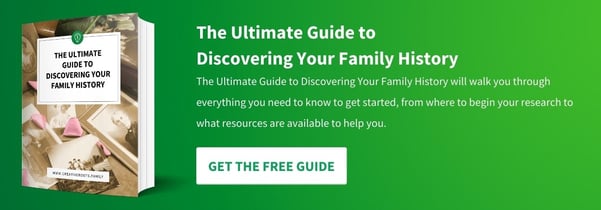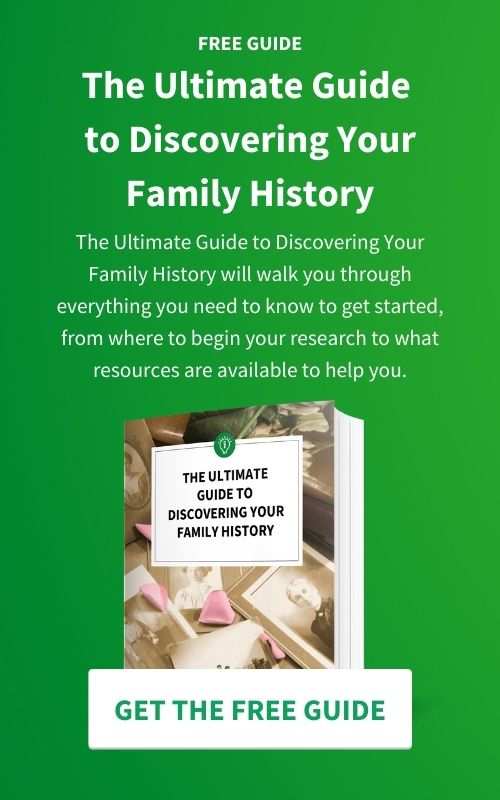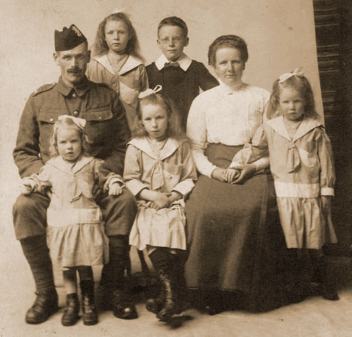Unearthing Stronger Ancestry Evidence
Genealogical research is a captivating journey into the past, allowing individuals to unravel the intricate tapestry of their family history. However, this pursuit is not without its challenges. From missing or incomplete records to the limitations of conventional sources, genealogists often find themselves navigating through murky waters in search of verifiable ancestry evidence. In this article, we will explore the importance of reliable evidence in genealogical research and delve into alternative solutions for uncovering stronger ancestry evidence.
Challenges of Genealogical Research
Conventional genealogical records, such as censuses, probate records, marriage licenses, and birth certificates, serve as the backbone of family history research. While these sources are invaluable, they often fall short, leaving gaps in the narrative of our ancestors' lives. Records may have been lost or destroyed over time, or they may contain inaccuracies due to human error or intentional omissions.
For instance, birth certificates may not accurately reflect parentage in cases of adoption or illegitimacy. Similarly, marriage licenses may not capture vital information about previous marriages or relationships. Additionally, conventional records may lack details about individuals who lived on the fringes of society or belonged to marginalized communities, making it challenging to trace their lineage.
Here are some other challenges associated with genealogy research:
-
Language Barriers: Throughout history, migrations, colonization, and cultural exchanges have led to the dispersion of populations across different regions and continents, resulting in diverse linguistic backgrounds among ancestral populations. Language barriers can pose significant challenges for genealogists, particularly when researching records written in languages unfamiliar to them. Translating documents accurately requires linguistic expertise and may involve deciphering archaic or regional dialects, further complicating the process.
-
Surname Changes: Surname changes, whether voluntary or involuntary, can obscure ancestral lineage and make it difficult to trace family history. Changes in surnames may occur due to marriage, adoption, naturalization, or anglicization of names upon immigration to a new country. Additionally, variations in spelling and pronunciation over time can further complicate surname research, requiring genealogists to employ creative strategies and thorough documentation to track familial connections.
-
Migration Patterns: Human migration has been a fundamental aspect of human history, driven by factors such as economic opportunities, political upheavals, religious persecution, and environmental pressures. Understanding ancestral migration patterns is essential for genealogists, as it provides context for locating relevant records and tracing family movements across geographical regions. However, tracing migratory paths can be challenging due to the lack of comprehensive migration records, the fluidity of borders, and the complexities of transnational research.
-
Impact of Historical Events: Wars, natural disasters, and forced resettlements have had profound effects on record-keeping practices and the preservation of historical documents. For example, conflicts such as World War I and World War II resulted in the destruction of archives, loss of vital records, and displacement of populations, making it difficult to trace family histories for individuals affected by these events. Similarly, natural disasters such as earthquakes, floods, and fires have destroyed repositories of historical records, further hindering genealogical research efforts.
-
Forced Migration and Displacement: Throughout history, populations have been subjected to forced migration and displacement due to factors such as slavery, colonialism, ethnic cleansing, and political persecution. These traumatic events often resulted in the fragmentation of families, loss of ancestral knowledge, and disruption of traditional record-keeping practices. Descendants of forcibly displaced populations may face significant challenges in tracing their ancestry, as historical records pertaining to their ancestors may be scarce, incomplete, or inaccessible.
Navigating these barriers requires genealogists to employ a combination of research skills, critical thinking, cultural sensitivity, and perseverance. By recognizing and addressing these challenges, researchers can overcome obstacles and uncover the rich tapestry of their family history.
Value of Non-Standard Records
In the absence of complete conventional records, genealogists can turn to non-standard sources to fill in the gaps. Letters, diaries, photographs, local histories, and ethnic-specific resources offer valuable insights into the lives of our ancestors. These sources provide a more personal and nuanced understanding of familial relationships, cultural traditions, and community dynamics.
Letters and diaries offer firsthand accounts of daily life, emotions, and significant events, allowing researchers to connect with ancestors on a more intimate level. Photographs provide visual documentation of family members, homes, and communities, offering clues about social status, occupations, and lifestyle. These non-standard records provide us with:
-
Personal Connection: Letters and diaries offer a unique window into the lives of our ancestors, providing firsthand accounts of their thoughts, emotions, and experiences. Unlike conventional records, which often focus on factual data such as names, dates, and events, personal correspondence allows genealogists to connect with their ancestors on a more intimate level. Reading letters written by ancestors can evoke a sense of empathy and understanding, helping to humanize distant relatives and bring their stories to life.
-
Visual Documentation: Photographs serve as visual artifacts that capture moments in time, offering valuable insights into family dynamics, social customs, and material culture. By examining old family photographs, genealogists can glean information about ancestral appearances, clothing styles, and living conditions. Moreover, photographs provide visual documentation of familial relationships, capturing images of relatives, homes, and communities that may not be found in traditional records. These visual clues can enrich your understanding of family history and provide context for further research.
-
Cultural and Social Context: Local histories and ethnic-specific resources provide valuable context for understanding your ancestors' lives within broader historical and cultural frameworks. These resources shed light on the social, economic, and political conditions that shaped their experiences, offering insights into community dynamics, migration patterns, and cultural traditions. By exploring local histories and ethnic-specific resources, genealogists can gain a deeper appreciation for the diversity and complexity of their family's heritage, transcending individual family narratives to situate their lineage within larger historical contexts.
-
Filling in the Gaps: Non-standard records often complement conventional sources by filling in the gaps left by incomplete or missing documents. While conventional records such as birth certificates, marriage licenses, and census records provide essential genealogical data, they may lack personal details or fail to capture the nuances of everyday life. Non-standard records offer a more holistic view of family history, providing insights into the personalities, relationships, and lived experiences of our ancestors that may not be found in official records alone.
In summary, non-standard records play a crucial role in enriching your heritage journey by offering a more personal, nuanced, and contextual understanding of your ancestors' lives. By exploring letters, diaries, photographs, local histories, and ethnic-specific resources, genealogists can connect with their ancestors on a deeper level, uncovering the human stories behind the names and dates recorded in conventional records. These non-standard sources provide valuable insights into familial relationships, cultural traditions, and community dynamics, helping to paint a more complete picture of your family's history and heritage.
Community and Social Organizations' Archives
Community and social organizations' archives serve as treasure troves of genealogical evidence, containing a wealth of records and artifacts related to specific geographical areas or demographic groups. These archives may include church records, school yearbooks, organizational minutes, and newspaper clippings, among other materials.
Locating and accessing these archives requires proactive engagement with local communities and organizations. Genealogists can reach out to historical societies, libraries, and cultural institutions to inquire about available resources and access protocols. Networking with fellow researchers and community members can also provide valuable leads and connections to archival materials.
Power of DNA Testing
DNA testing has revolutionized the field of genealogy, offering another strong evidence principle for tracing ancestry. Different types of DNA tests, including autosomal DNA, Y-DNA, and mtDNA, provide unique insights into familial relationships and migration patterns.
Autosomal DNA testing analyzes DNA inherited from both parents and can help identify genetic matches across multiple branches of the family tree. Y-DNA testing traces the patrilineal line, while mtDNA testing traces the matrilineal line, providing information about direct paternal and maternal ancestry, respectively.
DNA testing can confirm suspected relationships, uncover unknown relatives, and break through genealogical brick walls. By comparing DNA results with existing databases and genetic matches, genealogists can piece together the puzzle of their family history with greater precision.
Collective Wisdom of Online Genealogy Forums
Online genealogy forums serve as virtual meeting grounds for researchers to share knowledge, exchange ideas, and collaborate on projects. These platforms host a diverse community of genealogists, ranging from beginners to seasoned experts, who offer valuable insights, advice, and support.
Effective use of online genealogy forums involves active participation in discussions, asking targeted questions, and sharing research findings. By leveraging the collective wisdom of the online community, genealogists can overcome challenges, validate findings, and uncover new avenues for exploration.
These discussion forums provide valuable opportunities for genealogists to connect with others, exchange knowledge, and collaborate on research projects. Whether you're a beginner or a seasoned researcher, participating in online genealogy forums can enhance your research experience and help you overcome challenges along the way.
-
Ancestry Community: Ancestry.com hosts a vibrant community forum where users can ask questions, share research tips, and collaborate with fellow genealogists. The forum covers a wide range of topics, including DNA testing, record interpretation, and ancestral research strategies.
-
FamilySearch Community: FamilySearch.org, operated by The Church of Jesus Christ of Latter-day Saints, offers a community forum where users can seek help, share success stories, and discuss genealogical research challenges. The forum is divided into various categories, such as research help, indexing, and specific geographical regions.
-
Genealogy.com Forums: Genealogy.com provides a forum where users can connect with others interested in family history research. The forum covers topics such as genealogy software, surname research, and ethnic-specific research groups.
-
RootsChat: RootsChat is a popular genealogy forum focusing on British and Irish family history. Users can participate in discussions, share research findings, and seek assistance from fellow members. The forum features specialized sub-forums for different regions and topics of interest.
-
Reddit Genealogy: The Genealogy subreddit on Reddit serves as a platform for genealogists to discuss research methodologies, share resources, and seek advice from the community. Users can join specialized subreddits dedicated to specific genealogical topics, regions, or surnames.
-
Genealogy Wise: Genealogy Wise is a social networking platform for genealogists, offering discussion forums, interest groups, and networking opportunities. Users can connect with others who share similar research interests, join group discussions, and exchange research tips and resources.
-
Cyndi's List Forum: Cyndi's List, a comprehensive directory of genealogical resources, also features a forum where users can seek help, share experiences, and connect with other researchers. The forum covers a wide range of genealogical topics and is organized into categories for easy navigation.
Conclusion
In the quest for stronger ancestry evidence, genealogists must explore alternative solutions and embrace a multidisciplinary approach to research. Conventional records provide a solid foundation, but non-standard sources, community archives, DNA testing, and online forums offer additional layers of insight and validation. By leveraging these resources effectively, researchers can unearth a more comprehensive understanding of their family history and leave a lasting legacy for future generations. So, let us continue to delve into the depths of genealogical research, armed with curiosity, perseverance, and a commitment to uncovering the truth of our ancestors' lives.


Article by Carol Walsh
Carol Walsh is the CEO of Creative Roots, a professional genealogy company. She has a passion for preserving family history and storytelling. Carol's research methodology centers around fact-finding and publishing in a format that readers can use to preserve the stories. Her ultimate goal is to help families connect with their past and each other.




